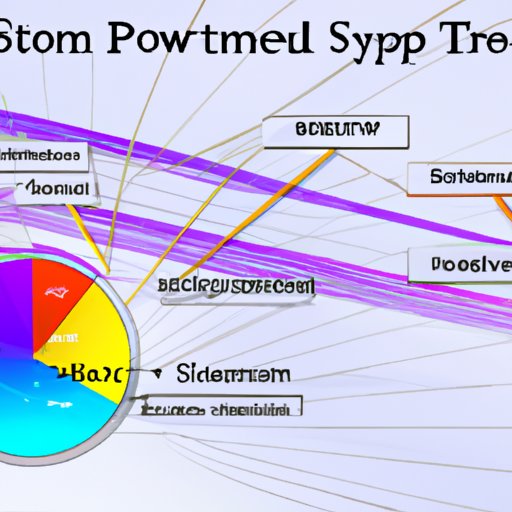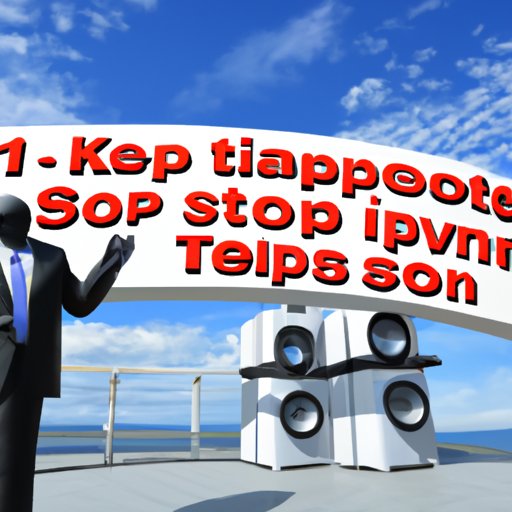Introduction
Having a slow computer can be incredibly frustrating. With so many of us relying on computers in our day-to-day lives, it’s important to understand what causes computer slowness and how to fix it. In this article, we’ll explore what programs slow down your computer and provide tips on how to optimize performance.

Analyzing System Performance to Identify Programs That Slow Down Your Computer
There are several ways to analyze your system performance and pinpoint the cause of your computer’s slowness. The first step is to check your system resources. You can do this by opening the Task Manager (Ctrl + Alt + Delete) and viewing the CPU, Memory, Disk and Network Usage. Be sure to also monitor the Task Manager for any processes or applications that are using an unusually large amount of memory or CPU power.
Another thing to consider is if you have any software updates pending. Software updates often contain bug fixes and performance improvements, so make sure you keep your programs up to date. Additionally, some updates may include patches to address security vulnerabilities, which can help protect your system from malicious attacks.
How to Uninstall Resource-Hogging Software and Improve System Performance
If you’ve identified programs that are taking up too many system resources, the next step is to uninstall them. Uninstalling unused or unwanted software can help free up valuable system resources and improve system performance. Additionally, utilizing PC optimization tools can help you identify and remove unnecessary files and programs, as well as clean up your registry and defragment your hard drive.
Five Common Programs That Can Slow Down Your Computer
There are several types of software that can slow down your computer, but here are five of the most common:
Web Browsers: Web browsers require a lot of system resources to run, especially when multiple tabs are open at once. If you find that your web browser is slowing down your computer, try closing some tabs or switching to a different web browser.
Antivirus Software: Antivirus software can take up a lot of system resources as it scans and monitors your computer for potential threats. To reduce its impact on system performance, consider adjusting the settings or disabling some of its features.
File Sharing Applications: File sharing applications such as BitTorrent and eMule can consume a lot of system resources and bandwidth. Consider disabling these applications or limiting their usage to only when necessary.
Video Streaming Services: Video streaming services like Netflix and YouTube can also take up a lot of system resources. Try adjusting the quality settings or pausing the video while you perform other tasks.
Overloaded Desktop Gadgets: Desktop gadgets are small programs that run in the background and display information on your desktop. Too many gadgets can slow down your computer, so try removing any unnecessary ones.

Ten Tips for Optimal System Performance
Here are ten tips to help improve your computer’s performance:
Install an SSD: Solid-state drives (SSDs) are much faster than traditional hard drives, so installing one can significantly improve system performance.
Upgrade RAM: Adding more random access memory (RAM) can help improve system performance, especially if you’re running multiple programs simultaneously.
Clear Temporary Files: Clearing out temporary files can help free up disk space and improve system performance.
Disable Unnecessary Startup Items: Some programs and services automatically start when you turn on your computer. Disabling these can help reduce system resource usage.
Update Drivers: Outdated drivers can cause conflicts and slow down your computer, so make sure you keep them up to date.
Clean the Registry: Cleaning your registry can help remove outdated entries and speed up your computer.
Defragment Hard Drives: Defragmenting your hard drive can help improve disk performance.
Monitor Background Processes: Monitor your system for any processes that are running in the background and consuming system resources.
Disable Visual Effects: Disabling visual effects such as animations and shadows can help reduce system resource usage.
Add More Physical Memory: If your system is low on physical memory, adding more can significantly improve system performance.
How to Troubleshoot and Resolve Issues Caused by Resource-Intensive Programs
If you’re having trouble with a resource-intensive program, there are several steps you can take to troubleshoot and resolve the issue. First, try identifying the problem by researching the error message or running diagnostics. Then, try reinstalling the program to see if that resolves the issue.
Conclusion
In conclusion, understanding what programs slow down your computer and how to optimize system performance is essential. By following the tips outlined in this article, you can identify and remove resource-hogging software, troubleshoot and resolve issues caused by resource-intensive programs, and improve your computer’s overall performance.
(Note: Is this article not meeting your expectations? Do you have knowledge or insights to share? Unlock new opportunities and expand your reach by joining our authors team. Click Registration to join us and share your expertise with our readers.)
